APPAM Policy Council and Leadership Election
The Policy Council is APPAM's governing board and is responsible for setting policy and creating strategy for the Association. It currently consists of four elected cohorts serving staggered, four-year terms of office. The APPAM officers (ex officio voting); the APPAM Executive Director and the Editor of JPAM (ex-officio non-voting) comprise the Executive Committee; the Executive Committee is also part of the Policy Council.
Elections for the new four-person cohort on the Policy Council, President-Elect, Vice President and Secretary begins on December 11th. The election will run until midnight Eastern Time on January 10th. Ballots will be emailed to all APPAM members in good standing.
Among the four person cohort for the Policy Council, one is a researcher in a non-acadmic setting, one is an institutional representative selected by the Committee of Institutional Representatives and two are researchers who work in academic settings. All will serve four-year terms.
Finally, one student is appointed annually to serve a two-year term on the Policy Council. There are two student seats on the Board and one new student is selected for service each year. They are appointed by the APPAM President, David Johnson, and the Chair of the Institutional Representatives, Patty Troppe. We are accepting nominations for this position until December 31st. Click here for more information on the nomination process.
You can view a list of the current APPAM Officers, descriptions of each officer position, and the current APPAM Policy Council Members.
How to Vote
Voting for the next Policy Council cohort, which serves from 2018 through 2021, and for Vice President and Treasurer, which serve from 2018 through 2019, begins December 11th. The election will conclude at midnight, Eastern Standard Time, on January 10th, 2018.
Follow the links below to the list of all nominees on this year's ballot. All current members will receive email instructions on how to vote on December 11th and will receive periodic reminders to vote until the January 10th deadline. If your membership has lapsed, you will not receive an e-mail with voting instructions. If you want to check the status of your membership, please do so here. If you have not received an e-mail and feel that your membership is current, please contact Tara Sheehan.
Leadership Nominees
The following is a list of nominees for APPAM's Officer Positions of Vice President and Secretary. Please note that President-Elect Matthew Stagner was appointed to the position of President-Elect by the APPAM Nominating Committee and voted by acclamation at the 2017 Fall Research Conference Membership Meeting. His statement is being presented for transparency and completeness and he is included in the ballot, although he was already appointed.
President-Elect Nominee
Uncontested; serves a 1-year term, automatically becomes APPAM President after the 2018 Fall Research Conference.
Matthew Stagner, Mathematica Policy Research
 I am thrilled to serve as President-Elect of APPAM. I have been a member of APPAM for nearly 35 years, and I’ve attended more than 30 Fall conferences over that time. I look forward to further service to this vibrant community.
I am thrilled to serve as President-Elect of APPAM. I have been a member of APPAM for nearly 35 years, and I’ve attended more than 30 Fall conferences over that time. I look forward to further service to this vibrant community.
APPAM has given me many things over the years: a professional community of shared values of rigor and relevance, a friendly yet critical learning environment, a place to be mentored, and a place to mentor in turn. No matter what you get out of APPAM, and whether it is your first associational home, or your second or third, I hope you can join me improving what we do, making it better each year.
I most recently served as APPAM’s secretary and chair of the Membership Committee. APPAM’s membership has exploded over the past few years. It is great to have so many new members, especially students. I look forward to making the association a great home for members old and new, expanding our reach to young career professionals. We must continue to promote and support the profession at all levels. We can strengthen APPAM by enhancing our diversity, to the benefit of all. We are pleased to increase the number of Equity and Inclusion Student Fellowships for the coming year. We hope as well to expand the number of sessions at the Fall conference that focus on issues of importance to under-represented groups.
I started my career in government, and I remain passionate about increasing the interaction of researchers, government officials and policy makers. APPAM’s combination of people from academic, non-academic research organizations, and government at all levels, makes it a rare place for exchange and improved understanding of perspectives. The 2018 conference will be back in our biennial home of Washington, DC, and we will be celebrating 40 years as an association. I hope we can break all our old records for submissions and attendance, and have the most exciting, thought-provoking, and collaborative meeting yet. Look for an announcement soon on the theme and types of sessions and events.
Finally, I encourage all of you to expand your involvement in APPAM, in ways small and large. Consider volunteering for a committee. Serve as (or seek out) a mentor. Attend an APPAM forum or student conference. Vote for Policy Council, and consider running yourself in the future. Whether you are new to APPAM, and or old-timer like me, I want to thank you for your membership and commitment. I look forward to working with you as President Elect, and as President, of this fine organization.
Vice President Nominee
Uncontested; serves a 2-year term; there are two Vice Presidents on APPAM's Executive Committee and Policy Council, serving staggered terms.
Christopher (Kitt) Carpenter, Vanderbilt University
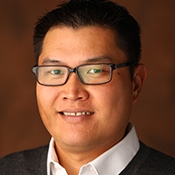 I am thrilled to have the opportunity to serve as an APPAM Vice President, working with the Executive Committee, Policy Council, staff, and members to make our association a diverse and welcoming organization to scholars and practitioners engaging in excellent evidence-based public policy research. Like many of you, I consider the organization to be my main intellectual home, and the Fall Research Conference is a ‘can’t miss’ event on my calendar. Currently I am a Professor of Economics at Vanderbilt University where I direct the Vanderbilt LGBT Policy Lab. I also hold courtesy appointments at Vanderbilt in Health Policy; Law; Education; Women’s and Gender Studies; and Medicine, Health, and Society. My research is in empirical health and labor economics, with a particular focus on substance use policy; cancer prevention; and LGBT populations and policies (more information about my scholarship can be found here).
I am thrilled to have the opportunity to serve as an APPAM Vice President, working with the Executive Committee, Policy Council, staff, and members to make our association a diverse and welcoming organization to scholars and practitioners engaging in excellent evidence-based public policy research. Like many of you, I consider the organization to be my main intellectual home, and the Fall Research Conference is a ‘can’t miss’ event on my calendar. Currently I am a Professor of Economics at Vanderbilt University where I direct the Vanderbilt LGBT Policy Lab. I also hold courtesy appointments at Vanderbilt in Health Policy; Law; Education; Women’s and Gender Studies; and Medicine, Health, and Society. My research is in empirical health and labor economics, with a particular focus on substance use policy; cancer prevention; and LGBT populations and policies (more information about my scholarship can be found here).
I have been fortunate to have many current and former APPAM service opportunities, including: APPAM Diversity Committee Member (2017-present); JPAM Co-Editor (2010-2014); JPAM Editorial Board Member (2006-2010, 2015-present); Fall Research Conference Co-Chair for Social Equity (2013-present); and APPAM Policy Council member (2012-2013). I also have extensive experience providing service to my other professional associations. For example, I am an elected member of the Board of Directors of the American Society of Health Economists, and I co-direct the American Economic Association’s LGBTQ Economists Working Group.
In addition to supporting the Executive Committee and ensuring the continued excellence at APPAM conferences and events, I hope to expand our Association’s commitment to diversity and inclusion. I would also like to increase mentoring opportunities for students and junior members of the field. Finally, I would strive to support the APPAM staff, who I think do an outstanding job for us.
Thank you for the opportunity to serve APPAM!
Secretary Nominee
Uncontested; serves a 2-year term.
Michael Shires, Pepperdine University
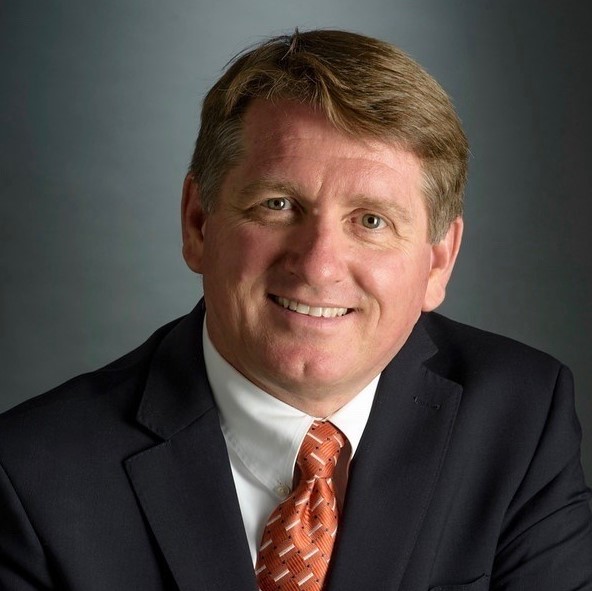 I am honored to be considered for the position of Secretary of APPAM. I am an Associate Dean and professor at the Pepperdine School of Public Policy. My research looks for ways to strengthen accountability and efficiency of finance and governance processes in state and local governments and examines ways to preserve educational and economic opportunity in disadvantaged communities. During my more than 24 years of APPAM involvement, I am proud of the essential role that the organization has played in building bridges between policy scholars, policy analysis, and policy makers. In that time, I have served as an institutional representative for 18 years representing two institutions and in a variety of leadership and committee roles within APPAM, including a stint as Chair of the Council of Institutional Representatives, a member of the APPAM Policy Council and Executive Committee, a member of several committees including the most recent revision of APPAM’s strategic plan. In each of these leadership roles, my focus has been to help APPAM play a leadership role in both defining and strengthening the profession and academic discipline of public policy, and to improve its ability to influence the making of public policy and policy decisions.
I am honored to be considered for the position of Secretary of APPAM. I am an Associate Dean and professor at the Pepperdine School of Public Policy. My research looks for ways to strengthen accountability and efficiency of finance and governance processes in state and local governments and examines ways to preserve educational and economic opportunity in disadvantaged communities. During my more than 24 years of APPAM involvement, I am proud of the essential role that the organization has played in building bridges between policy scholars, policy analysis, and policy makers. In that time, I have served as an institutional representative for 18 years representing two institutions and in a variety of leadership and committee roles within APPAM, including a stint as Chair of the Council of Institutional Representatives, a member of the APPAM Policy Council and Executive Committee, a member of several committees including the most recent revision of APPAM’s strategic plan. In each of these leadership roles, my focus has been to help APPAM play a leadership role in both defining and strengthening the profession and academic discipline of public policy, and to improve its ability to influence the making of public policy and policy decisions.
As a Ph.D. graduate of an APPAM institutional member, a former research fellow at two member think tanks, and a professor at another member MPP-only school, I bring many valuable perspectives to APPAM’s leadership. I see APPAM as a key resource to the global policy community to improve the quality of public policy choices through better participation, analysis, research and inclusiveness in its scholarship, outreach, and leadership and I would be honored to carry that passion and vision forward if elected to serve as its Secretary.
Back to top of page.
Nominees in a Non-Academic Setting
One is elected for a 4-year term.
Misty Heggeness, Census Bureau
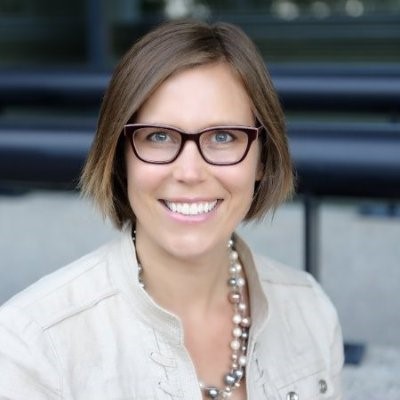 I am the chief of the Longitudinal Research, Evaluation, and Outreach Branch at the Census Bureau and have over 10 years of experience working in federal and local government. Currently, my work involves linking administrative records to survey data to help improve national statistics on poverty and income inequality and developing new methodologies for transforming household survey data for use with big data.
I am the chief of the Longitudinal Research, Evaluation, and Outreach Branch at the Census Bureau and have over 10 years of experience working in federal and local government. Currently, my work involves linking administrative records to survey data to help improve national statistics on poverty and income inequality and developing new methodologies for transforming household survey data for use with big data.
My primary research areas include labor economics, social policy, program evaluation, and economic demography. I have implemented numerous program and policy evaluations to study topics like: (1) the impact of federally funded programs on reducing child labor in developing countries, (2) the impact of increasing women’s bargaining power on children’s education, and (3) the effect of funding early career scientific training on long-term career outcomes.
Prior to joining the Census Bureau, I held research economist positions at the National Institutes of Health and the Department of Labor. I have a PhD in Applied Economics, a Master in Public Policy, and a Master in Social Work from the University of Minnesota.
If elected to the APPAM Policy Council, I would work on building and strengthening relationships between federal government and academic researchers, focus on cross-collaborations that cut down barriers to data access within federal systems, and encourage outreach and increased participation by federal and local government in APPAM priorities and related policy and research activities.
Rob Olsen, Independent Consultant / George Washington University
 I am very pleased to be considered for the APPAM Policy Council. I have been an APPAM member since graduate school and through research positions at Mathematica Policy Research, the Urban Institute, and Abt Associates. My specialty is the design and implementation of impact evaluations, and I am particularly interested in the design of randomized trials to improve their external validity/relevance for informing policy decisions. I went independent last year and have recently become a research professor at the George Washington Institute of Public Policy. Through this process, I have had the chance to rethink how I can contribute to the field. High on my list would be greater involvement with APPAM, my professional home for the past 20 years.
I am very pleased to be considered for the APPAM Policy Council. I have been an APPAM member since graduate school and through research positions at Mathematica Policy Research, the Urban Institute, and Abt Associates. My specialty is the design and implementation of impact evaluations, and I am particularly interested in the design of randomized trials to improve their external validity/relevance for informing policy decisions. I went independent last year and have recently become a research professor at the George Washington Institute of Public Policy. Through this process, I have had the chance to rethink how I can contribute to the field. High on my list would be greater involvement with APPAM, my professional home for the past 20 years.
Over those years, I’ve contributed to APPAM—but not enough given how much I’ve benefited. I have organized many conference sessions, reviewed submissions for the conference, and reviewed journal articles for JPAM. I would like to substantially increase my contributions to help ensure that APPAM remains a great professional home for researchers and practitioners focused on creating and using rigorous evidence to improve policy decisions. I am particularly interested in helping to ensure that APPAM’s annual conference, special events, and its flagship journal maintain their strong focus on both rigor and relevance. I am also very interested in supporting APPAM’s ongoing efforts to help newly minted researchers gain a productive foothold in the policy research profession.
Trudi Renwick, Census Bureau
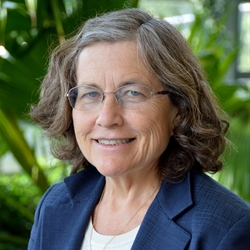 As Assistant Division Chief for Economic Characteristics in the Social, Economic and Housing Statistic Division of the U.S. Census Bureau I oversee the work of three branches: Poverty Statistics, Income Statistics and the Program Participation and Income Statistics. I also manage the research and development of the Supplemental Poverty Measure. For the past several years I have had the opportunity to participate in the Poverty and Income Inequality Working Group of the U.N. Economic Commission on Europe. I am co-chair of the Office of Management and Budget working group on the Sustainable Development Goals focusing on Goal 1: end poverty in all its forms everywhere.
As Assistant Division Chief for Economic Characteristics in the Social, Economic and Housing Statistic Division of the U.S. Census Bureau I oversee the work of three branches: Poverty Statistics, Income Statistics and the Program Participation and Income Statistics. I also manage the research and development of the Supplemental Poverty Measure. For the past several years I have had the opportunity to participate in the Poverty and Income Inequality Working Group of the U.N. Economic Commission on Europe. I am co-chair of the Office of Management and Budget working group on the Sustainable Development Goals focusing on Goal 1: end poverty in all its forms everywhere.
From 2010 to 2015, I was the chief of the Poverty Statistics Branch, responsible for poverty statistics from the Current Population Survey Annual Social and Economic Supplement, the American Community Survey and the Survey of Income and Program Participation. I have written numerous research papers on various aspects of the Supplemental Poverty Measure, including the adjustment of the thresholds for geographic differences in housing costs and methods for assigning values to noncash benefits as well as several papers proposing a methodology for estimating the Supplemental Poverty Measure using the American Community Survey.
I joined the Census Bureau in 2008 after working for many years in New York as a senior economist for the Fiscal Policy Institute and the Public Utility Law Project. I also worked for a number of nonprofit advocacy groups, including Families USA and the National Association of Farmworker Organizations and taught economics at Skidmore College and Siena College.
I earned a PhD in economics from American University. I am the author of a book, Poverty and Single Parent Families: A Study of Minimal Subsistence Household Budgets.
I have served on the program committee for several years and now would be honored to serve as a member of the policy council. I feel that I can make an important contribution to the policy council because of my experience in all APPAM membership domains. I have been an academic, an advocate and now a government official. As you can see from my background, my research interests have focused on poverty, income inequality, and anti-poverty programs. I am passionate about promoting efforts to improve the measurement of economic wellbeing and mobility and would use my position on the APPAM policy council to promote work on these issues. I think APPAM plays a critical role in connecting academics and researchers with policymakers and would use my position on the policy council to continue to foster and strengthen these ties.
Sheena Trull, National Council of La Raza
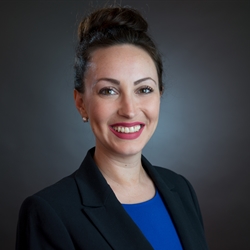 I am honored to be nominated for the APPAM Policy Council Board at such a crucial time for our local, state and federal landscapes. I believe that APPAM is an exciting organization that helps to bridge the gaps between research, practice and policymaking. I became involved in APPAM as a PhD student and have continued to be engaged in the organization throughout my career.
I am honored to be nominated for the APPAM Policy Council Board at such a crucial time for our local, state and federal landscapes. I believe that APPAM is an exciting organization that helps to bridge the gaps between research, practice and policymaking. I became involved in APPAM as a PhD student and have continued to be engaged in the organization throughout my career.
I bring both advocacy and government experience to the APPAM Policy council. I am currently the Senior Policy Advisor at UnidosUS, formerly National Council of La Raza, the largest Latino civil rights and advocacy organization in the United States. I lead our federal and state education policy work, including the current implementation of the Every Student Succeeds Act, with a particular focus on Latino and English Learner students. In this role I have a front row seat to the current precipice between state and federal policy, as well as the opportunity of states to use research-based practices to improve outcomes for all students. In this role I provide policy analysis and recommendation to policymakers, grassroots advocates and stakeholders across various communities. I often witness the disconnect between research and practice, and hope to contribute to the Council by further bridging gaps between policy and practice in new and innovative ways that includes engaging communities that have been historically marginalized.
Prior to UnidosUS, I was a Presidential Management Fellow at the White House Office of Management and Budget where I was a member of President Obama’s Community Solutions team. As a member of this team, our charge was to create practices that made federal agencies better partners to local communities. We created a curriculum and training for more than 300 federal employees on how to marry policy, practice and community engagement in place-based strategies throughout the country. After leaving the community solutions team, I managed a portfolio of $4.2 billion in federal education spending that covered a variety of programs including STEM education, Promise Neighborhoods, Charters and Magnets, and other programs serving some of our most vulnerable students. Additionally, I was a practicing defense attorney in Philadelphia, PA where I was able to see government at work from the outside. From these experiences, I’m aware of the bureaucracy and governmental limitations that can influence policy adoption and implementation.
If elected, I hope to combine the multi-perspective lessons that I’ve learned throughout my career to help APPAM do outreach to marginalized communities, to close gaps between policy, practice and bureaucracy, and to support efforts around the implementation of evidence-based practices. I hope to have this wonderful opportunity, and look forward to continuing to be a part of APPAM’s promising work.
Back to top of page.
Nominees in an Academic Setting
Two are elected for 4-year terms.
Alok Bhargava, University of Maryland
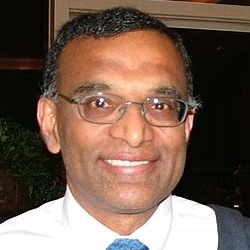 I would be glad to serve on the APPAM Policy Council. I have extensive research and policy experience on issues that are critical for economic development and for improving well-being in developed countries. I started my career as a theoretical econometrician; since 1988, I have been applying the econometric methods for developing evidence-based policies in developing and developed countries. I have published my findings in top academic journals in fields such as economics, finance, nutrition, psychology, demography, anthropology, epidemiology, and public health. The analyses have been utilized for policy formulation by international agencies such as the World Bank, International Food Policy Research Institute, US Department of Agriculture, National Institutes of Health, Food and Agriculture Organization, and the Asian Development Bank. I believe that I will bring a broad perspective on issues that APPAM should emphasize in the future. In addition, I have been active in serving the larger professional and administrative communities. For example, I was the chair of the University of Houston promotion and tenure committee that covered 27 diverse departments. I have edited 3 special issues of the Journal of Econometrics that have bridged the gap between disciplines such as economics, epidemiology, and finance. Finally, I would like to see greater emphasis from the Policy Council on socio-demographic and other factors affecting urgent issues such as climate change.
I would be glad to serve on the APPAM Policy Council. I have extensive research and policy experience on issues that are critical for economic development and for improving well-being in developed countries. I started my career as a theoretical econometrician; since 1988, I have been applying the econometric methods for developing evidence-based policies in developing and developed countries. I have published my findings in top academic journals in fields such as economics, finance, nutrition, psychology, demography, anthropology, epidemiology, and public health. The analyses have been utilized for policy formulation by international agencies such as the World Bank, International Food Policy Research Institute, US Department of Agriculture, National Institutes of Health, Food and Agriculture Organization, and the Asian Development Bank. I believe that I will bring a broad perspective on issues that APPAM should emphasize in the future. In addition, I have been active in serving the larger professional and administrative communities. For example, I was the chair of the University of Houston promotion and tenure committee that covered 27 diverse departments. I have edited 3 special issues of the Journal of Econometrics that have bridged the gap between disciplines such as economics, epidemiology, and finance. Finally, I would like to see greater emphasis from the Policy Council on socio-demographic and other factors affecting urgent issues such as climate change.
Amelie F. Constant, Princeton University
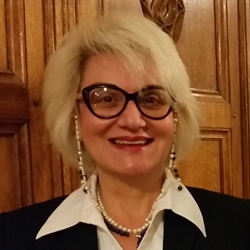
I am delighted to be nominated to the 2018 APPAM Policy Council. As an empirical labor economist working on population, migration and health who believes in evidence-based policymaking and as someone who has worked very well, and still does, with researchers from other disciplines, APPAM is the best association for me to be a member of.
During my tenure in DC from 2006 to 2013, I was also teaching, first at Georgetown and later at George Washington University. I was urging my students and my interns to attend the DC conferences, who have also benefited from them. The APPAM student conferences are very valuable to graduate students and others.
I have met terrific colleagues and great students at the APPAM conferences and I have been to very interesting and high caliber sessions. I find the multidisciplinarity of the conferences very constructive. The international conferences of APPAM are an added bonus to us members. I went to the Brussels conference this past June, and once again, I met new colleagues and started new collaborations in London and Maastricht. I very much like the combination of academic, practitioners, and policymaking aspects. I have very high regards for the APPAM board, its presidents, and all the people who work behind the scenes to maintain the high standards of the association. I totally espouse APPAM’s vision and mission.
My motive to be on the Council is first, a sense of giving something back to an association that has helped me personally. I would like to participate in planning meetings and offer my ideas about how to make the association more beneficial to the members and in the process increase membership. My goal is to increase the participation of students and junior scholars and give them opportunities to present their work and make connections that will help them in the future. I would very much like to have some mentorship program and candidly discuss issues with them such as successful careers, effective policymaking, efficiency in publications, the power of volunteering, and ethics.
In addition, I would like to contribute to the association’s diversity, to reach out and bring a more diverse body of membership. I would be very happy to facilitate connections for the good of APPAM. From my years of living in Europe and being the Director of the Migration Area at IZA, as well as from my current fellowships at UNU-MERIT, University of Maastricht, GLO, and CESifo and University of Munich, I have built an international network of researchers, stakeholders, and policymakers that can enrich and cross-fertilize APPAM’s membership.
I would like to bring a new level of awareness of policy-relevant interdisciplinary research. I believe in interdisciplinary research. Over the years I have worked with and co-authored with sociologists, geographers, political scientists, engineers, medical doctors, statisticians, lawyers, and education methodologists. Interdisciplinary output is always more powerful.Lastly, motivated by my own work and philosophy, I have a keen interest in increasing the policy relevance of economic research at APPAM.
All of my work has important policy relevance. I try to answer questions that can improve the conditions of minority populations, the marginalized and the vulnerable, and can be of use to policymakers and the public. I am a strong believer of evidence-based policymaking and in maintaining unbiasedness in results. My numerous policy briefs attest to placing importance in in the policy relevance of economic research.
I would appreciate the opportunity to be a member of the APPAM Council and serve the association. I would appreciate your vote and confidence in me very much.
JR DeShazo, University of California Los Angeles
 I will prioritize developing the Council’s capacity to support members to be better prepared to address society's increased political polarization as well as develop and incorporate digital technologies (such as apps) more effectively in the public and non-profit sectors.
I will prioritize developing the Council’s capacity to support members to be better prepared to address society's increased political polarization as well as develop and incorporate digital technologies (such as apps) more effectively in the public and non-profit sectors.
Currently, I am Chair of the UCLA Luskin School of Public Affairs’ Public Policy Department and Director of the Luskin Center for Innovation. My research focuses on institutional reform, environmental economics, and public finance. I hold a B.A. from the College of William and Mary, a M.Sc. from Oxford University, where I was a Rhodes Scholar, and a Ph.D. from Harvard University.
Ronald Fisher, Michigan State University
 I would be honored to serve on the APPAM Policy Council. As a long-time APPAM member and recipient of the Steve Gold Award from the Association, I have appreciated and benefitted from the diversity of public policy work represented by APPAM members. My own research and policy work concerns the finances and services of subnational (state and local) governments and intergovernmental fiscal relations, especially between those subnational units and national governments.
I would be honored to serve on the APPAM Policy Council. As a long-time APPAM member and recipient of the Steve Gold Award from the Association, I have appreciated and benefitted from the diversity of public policy work represented by APPAM members. My own research and policy work concerns the finances and services of subnational (state and local) governments and intergovernmental fiscal relations, especially between those subnational units and national governments.
In addition an academic research program, I have had the opportunity to work directly with a number of governments and agencies, including Deputy Treasurer for Michigan, the Federal Reserve Bank of Boston, and (long-ago) the US Advisory Commission on Intergovernmental Relations. Internationally, I have served as visiting scholar at the Australian National University and Zhongnan University of Economics and Law in China and am a veteran member of the International Institute of Public Finance. With my diverse interest and experience with state and local government public finance and the state-local sector, I could represent that area of economic and policy work within APPAM.
Although Michigan State does not have a separate public policy school, I serve on a coordinating committee and teach in our public policy program, which is operated jointly by the Departments of Political Science and Economics in the College of Social Science. Further involvement with APPAM would contribute greatly to our Program, as well.
Shanti Gamper-Rabindran, University of Pittsburgh
 eing nominated to serve on the policy council is a great honor. I am an Associate Professor at the Graduate School of Public and International Affairs (GSPIA) at the University of Pittsburgh (Pitt).
eing nominated to serve on the policy council is a great honor. I am an Associate Professor at the Graduate School of Public and International Affairs (GSPIA) at the University of Pittsburgh (Pitt).
I am grateful to APPAM colleagues for their generous support of beginning scholars’ intellectual journeys, including women, minorities, and international scholars. Colleagues have supported my work — from my thesis selection as a runner-up for its dissertation award many years ago to my recent work as the editor and contributor to The Shale Dilemma: A Global Perspective on Fracking and Shale Development. The volume brings together eight in-country experts active in policy-advising to examine how political, economic and legal institutions influence developed and developing countries’ energy development pathways and impacts on society, public health and the environment.
I plan to continue working with APPAM colleagues to strengthen our big tent approach of welcoming diverse viewpoints, interdisciplinary work, scholar-practitioner collaborations, and cooperation across policy schools. Over the years, my GSPIA/Pitt colleagues, students and I have organized several interdisciplinary and scholar-practitioner panels at APPAM conferences that address economic development, environmental and energy issues. These panels have been key fora in developing collaborative research and enhancing exchange with scholars and policy communities in the US and abroad. Working with APPAM colleagues, I hope to bring more practitioner voices to these conferences, particularly from state and local governments and NGOs, and from emerging economies.
APPAM colleagues have shared their experiences on building programs that prepare our policy students for careers in a globalized world. Drawing on APPAM colleagues’ connections, I have helped build our programs at GSPIA/Pitt by establishing faculty/student linkages with policy schools abroad and by connecting our students to service-learning opportunities aboard. Recently I served as a visiting Professor at the Arava Institute of Environmental Studies, which strives for cross-border environmental cooperation despite political conflict. Working with APPAM colleagues, we hope to enhance cooperation across policy schools, by linking those active in APPAM with those more active in our counterpart organizations, such as the Association for Professional Schools in International Affairs (APSIA). My work is detailed at www.shanti1.weebly.com.
James Marton, Georgia State University
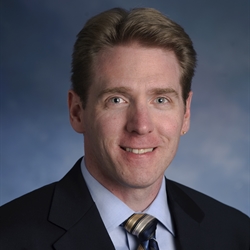 My name is Jim Marton and there are several reasons why I believe I would be a good addition to the APPAM Policy Council. First, I have been a regular attendee at the Fall Research Conference for close to 15 years, considering it a “must attend” event during the busy fall conference season. Second, I have worked a diverse set of policy schools during my career, including the Martin School at Kentucky, the Taubman Center at Brown, and the Andrew Young School (AYS) at Georgia State. At both the Martin School and the Taubman Center I taught courses in MPA degree programs and worked within a multi-disciplinary department. I now sit on the faculty of the Economics Department at the AYS and teach health economics and policy to undergraduate and graduate students. In addition, I do a great deal of collaborating with the Georgia Health Policy Center, a soft money center that also sits in the AYS. I believe these experiences give me some insight into the motivations and concerns of many different types of APPAM members, from those in public administration departments, to those in more traditional academic departments, to those in soft-money environments such as think tanks or consulting firms. Finally, my research focus on health economics and policy, especially Medicaid, would be of use as the share of public resources and public debate on such topics increases. If elected I would take as my mission to advance the three goals described in APPAM’s 2015 Strategic Plan: i) promote the discipline of public policy analysis and management, ii) expand interactions between researchers and policy makers, and iii) expand efforts to create more diverse membership.
My name is Jim Marton and there are several reasons why I believe I would be a good addition to the APPAM Policy Council. First, I have been a regular attendee at the Fall Research Conference for close to 15 years, considering it a “must attend” event during the busy fall conference season. Second, I have worked a diverse set of policy schools during my career, including the Martin School at Kentucky, the Taubman Center at Brown, and the Andrew Young School (AYS) at Georgia State. At both the Martin School and the Taubman Center I taught courses in MPA degree programs and worked within a multi-disciplinary department. I now sit on the faculty of the Economics Department at the AYS and teach health economics and policy to undergraduate and graduate students. In addition, I do a great deal of collaborating with the Georgia Health Policy Center, a soft money center that also sits in the AYS. I believe these experiences give me some insight into the motivations and concerns of many different types of APPAM members, from those in public administration departments, to those in more traditional academic departments, to those in soft-money environments such as think tanks or consulting firms. Finally, my research focus on health economics and policy, especially Medicaid, would be of use as the share of public resources and public debate on such topics increases. If elected I would take as my mission to advance the three goals described in APPAM’s 2015 Strategic Plan: i) promote the discipline of public policy analysis and management, ii) expand interactions between researchers and policy makers, and iii) expand efforts to create more diverse membership.
Rebecca Myerson, University of Southern California
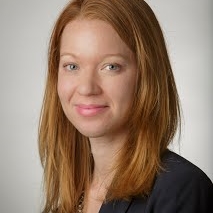 I know through personal experience that APPAM can help students disseminate their research, find mentors, and launch their careers. My own positive experiences at APPAM conferences as a student member inspired me to join the APPAM Student Advisory Committee, and subsequently join the APPAM Professional Development Committee. As a Policy Council member, I would continue to support APPAM’s mission to help students and recent graduates with interests in policy analysis and public management.
I know through personal experience that APPAM can help students disseminate their research, find mentors, and launch their careers. My own positive experiences at APPAM conferences as a student member inspired me to join the APPAM Student Advisory Committee, and subsequently join the APPAM Professional Development Committee. As a Policy Council member, I would continue to support APPAM’s mission to help students and recent graduates with interests in policy analysis and public management.
In addition to supporting emerging researchers and practitioners, my background in international and interdisciplinary policy research enables me to support APPAM’s initiatives proposed in the strategic plan. Prior to my PhD studies, I worked for three years at a global health research institute and spent one year conducting research at Peking University in China as a Fulbright Scholar. My academic background is highly interdisciplinary. In addition to a PhD in Public Policy from University of Chicago, I hold a BA degree in Psychology from Harvard and a Master in Public Health degree from University of Washington. I have collaborated with psychologists, pharmacists, economists, medical doctors, and epidemiologists on policy research.
As a Policy Council member, I would leverage these experiences to support APPAM’s goals of promoting students’ professional development, promoting diversity in the field of policy analysis, and supporting communication across disciplinary silos.
Doug Noonan, Indiana University - Purdue University Indianapolis
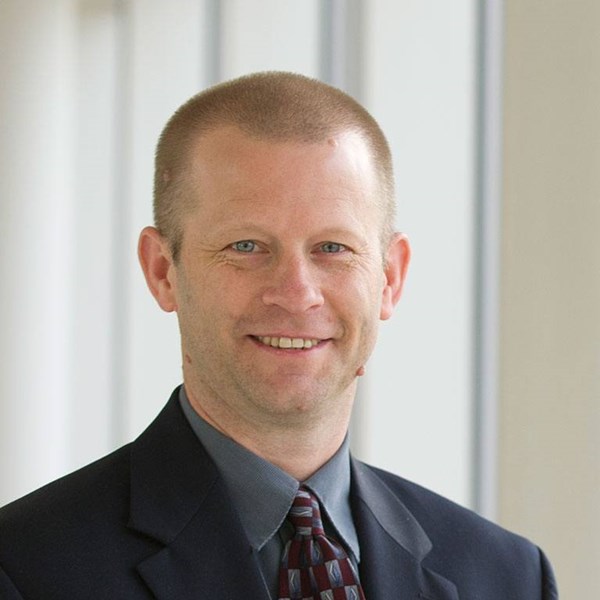 I am honored to be nominated to serve on the APPAM Policy Council. I am excited to serve APPAM to advance our field. More than just a venue for presenting my research every November for the past 15 years, APPAM is a source of mentorship, leadership, and bridge-building between academics and practitioners in support of evidence-based policy solutions. Over the years, I have been fortunate to be involved in other roles in APPAM, such as serving on program committees, organizing panels, and serving as an institutional representative. In that time, my appreciation for APPAM’s leadership and impact on the work of scholars and practitioners has grown. I look forward to furthering its valuable mission and strategic goals.
I am honored to be nominated to serve on the APPAM Policy Council. I am excited to serve APPAM to advance our field. More than just a venue for presenting my research every November for the past 15 years, APPAM is a source of mentorship, leadership, and bridge-building between academics and practitioners in support of evidence-based policy solutions. Over the years, I have been fortunate to be involved in other roles in APPAM, such as serving on program committees, organizing panels, and serving as an institutional representative. In that time, my appreciation for APPAM’s leadership and impact on the work of scholars and practitioners has grown. I look forward to furthering its valuable mission and strategic goals.
I am a Professor at the School of Public and Environmental Affairs’ (SPEA) Indianapolis campus, where I research at the intersection of environmental and urban policy and economics. Over my career, I have published in a variety of subject areas – embracing interdisciplinarity and the importance of applied, practitioner-oriented policy research. If elected to the Policy Council, I would continue to embrace and support diversity across the APPAM community. My chairing the urban-serving universities section at the Network of Schools of Public Policy, Affairs, and Administration, for instance, combines my appreciation for the diversity in our members’ own contexts and my interest in promoting community-engaged research. To me, the strong links to policy practice and practitioners, interdisciplinary, and diversity of subjects and approaches are the hallmarks of a strong APPAM. They separate APPAM from other disciplinary associations. I’m committed to helping make APPAM a welcoming home that accelerates its members’ work. A top priority of mine is growing APPAM’s role in supporting young scholars and students.
Cynthia Osborne, University of Texas – Austin
 I am thrilled to be nominated to be a member of the APPAM Policy Council. I am an associate professor of public affairs at the LBJ School at The University of Texas at Austin. At LBJ, I direct the Center for Health and Social Policy and the Child and Family Research Partnership (CFRP), which I founded in 2011. CHASP is our school’s home for social policy and specializes in building collaborations across the campus and community to address social and economic disparities in the US and abroad. CFRP conducts large-scale evaluations of state and national programs, and provides research and consultation to state agencies and large nonprofit organizations in the areas of early childhood, family strengthening, fatherhood, child welfare, and teen pregnancy prevention. I have been a member of APPAM for over 15 years, beginning when I was a doctoral student at the Woodrow Wilson School. Nearly every year since then I have presented, organized, and/or discussed on a panel at the annual meeting. I value the annual meetings as an opportunity to reconnect with colleagues and keep informed at the fore of policy research. I joined the APPAM Policy Council in 2013, and I have served on the strategic planning preparation committee and nominating committee, and I have chaired the policy relevance and professional development committees. I value the commitment the organization has to advancing the work of public policy scholars and improving the research and learning experience of faculty and students. As a member of the Policy Council, I hope to continue to advance APPAM’s mission and contribute to the leadership of the organization in any way I am needed.
I am thrilled to be nominated to be a member of the APPAM Policy Council. I am an associate professor of public affairs at the LBJ School at The University of Texas at Austin. At LBJ, I direct the Center for Health and Social Policy and the Child and Family Research Partnership (CFRP), which I founded in 2011. CHASP is our school’s home for social policy and specializes in building collaborations across the campus and community to address social and economic disparities in the US and abroad. CFRP conducts large-scale evaluations of state and national programs, and provides research and consultation to state agencies and large nonprofit organizations in the areas of early childhood, family strengthening, fatherhood, child welfare, and teen pregnancy prevention. I have been a member of APPAM for over 15 years, beginning when I was a doctoral student at the Woodrow Wilson School. Nearly every year since then I have presented, organized, and/or discussed on a panel at the annual meeting. I value the annual meetings as an opportunity to reconnect with colleagues and keep informed at the fore of policy research. I joined the APPAM Policy Council in 2013, and I have served on the strategic planning preparation committee and nominating committee, and I have chaired the policy relevance and professional development committees. I value the commitment the organization has to advancing the work of public policy scholars and improving the research and learning experience of faculty and students. As a member of the Policy Council, I hope to continue to advance APPAM’s mission and contribute to the leadership of the organization in any way I am needed.
Back to top of page.
Institutional Member Representative
One is elected for a 4-year term.
**Please note: only institutional members vote for the institutional member representative on the Policy Council.**
Nelson Lim, University of Pennsylvania
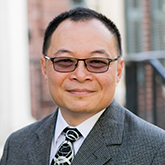
I am excited to be nominated to serve as a member of the APPAM policy council. Based on my administrative and research experience, I can offer unique perspectives to the Council. Currently, I am the executive director of the University of Pennsylvania’s Fels Institute of Government. At Fels, I manage Master of Public Administration degree programs and teach courses in public management, program evaluation, and data science. In addition, I am an adjunct senior social scientist at RAND Corporation.
For the last 17 years, I have worked with local and federal government organizations including police and fire departments, the Department of Defense, and the National Security Administration on a wide range of personnel policy issues. I also served as the research director for the congressionally mandated Military Leadership Diversity Commission, which conducted a comprehensive assessment of policies that provide opportunities for the promotion and advancement of minority members and women in the Armed Forces. I have conducted research on the most effective diversity practices by Fortune 500 companies, and on barriers to improve diversity among the leadership of various government agencies and corporations. With my administrative experience, I am intimately familiar with education and career issues facing APPAM members who hold master degrees and are students of master degrees in public affair programs. With my research experience, I can provide evidence-backed strategies to improve diversity and create a more inclusive environment for the APPAM members.
Back to top of page.